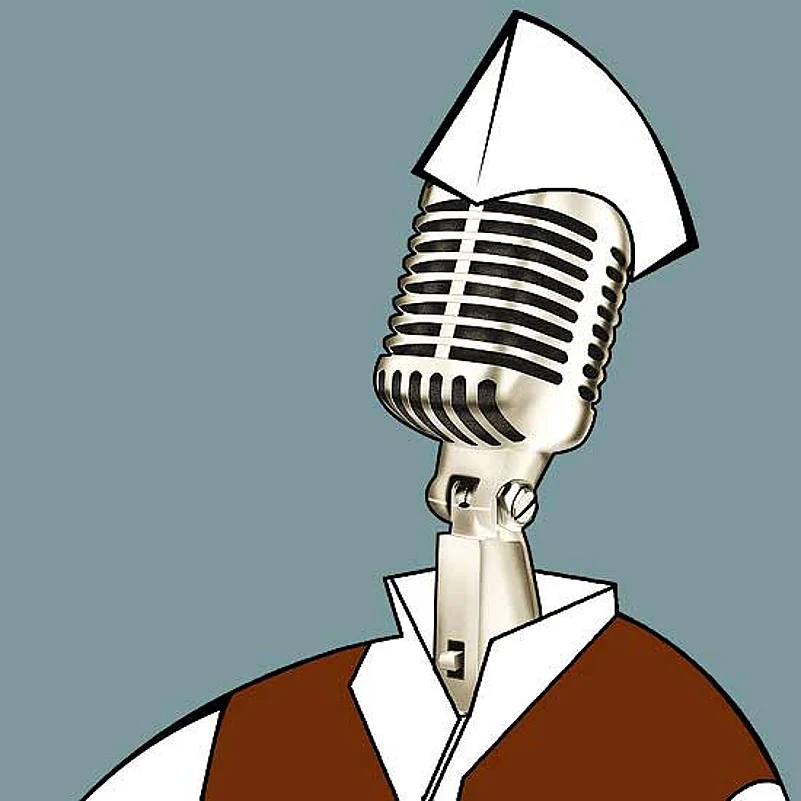After watching Barack Obama make his victory speech, many of us asked: when was the last time we heard an inspirational public speech by an Indian? No doubt there have been, and still are, some great speakers in the regional languages, but I really can’t remember the last time I heard a great pan-Indian speech. Jawaharlal Nehru’s ‘Tryst with destiny’ masterpiece at the stroke of the midnight hour? But that was in 1947 when most of us weren’t born. In my lifetime, a part of which has been spent following Indian politicians around and covering their speeches, there have been far too many who inspire nothing beyond deadening boredom. The few good public speakers are Atal Behari Vajpayee, Laloo Prasad Yadav and Narendra Modi. Love them or hate them, if you will, but these guys can get you to pay attention to what they have to say.
But none of them can match an Obama when it comes to delivering those big seemingly epoch-quantifying speeches, which press all the subliminal buttons that make us feel good, hopeful, or just plain proud for a brief moment to be citizens of a particular nation. Great speeches are about both content and delivery. The ‘Tryst with destiny’ speech, for instance, is fine writing married to great content delivery on a historically significant day. Obama’s victory speech is actually full of fluff and non-committal generalities. But it hits the right notes, is full of positive emotions, no negatives and is delivered beautifully, with the correct voice modulation, the right pauses and the appropriate emotional pitch. He says the right things, while appearing sincere and sensitive.
The secret of Obama’s oratory skills is apparently the tele-prompter. All American politicians know the technique well, but Obama is quite the master. Critics of the US president say he is just a great reader of the prepared text and that he has benefited from having terrific speechwriters. Still, in an age when so much of pleasure and emotion is simulated, it’s par for the course for a politician to learn a technique to reach out to many people and speak to them effectively. Let us not make light of the fact that Indian news channels would rarely telecast the entire speech of an Indian politician on prime-time; the English language channels ran and reran Obama’s speech in its entirety because it held our attention and was a riveting performance.
The day we heard the Obama speech live, around noon IST, I spent the evening at a school production of Shakespeare’s plays. Students of class eight were enacting famous scenes from the masterpieces—there were the witches from Macbeth looking into the future, Juliet on a balcony speaking to Romeo, the Merchant of Venice asking for his pound of flesh. And there was Mark Antony speaking at the death of Julius Caesar. That little amateur performance had me reflecting on what might well be one of the first great political speeches—as it found depiction in a Shakespearean classic. “Friends, Romans, countrymen, lend me your ears. I come to bury Caesar, not to praise him....” In the play, Antony is able to deliver a speech that changes the mood of the citizens of the Roman republic, from anger at Caesar’s tyranny to regret over his death. Remember the lines, “The evil that men do lives after them; The good is oft interred with their bones; So let it be with Caesar....”
I do not expect Indian politicians to start delivering speeches like a Marlon Brando’s or a Richard Burton’s Mark Antony. But wouldn’t it be a great improvement in the quality of public discourse if the new generation of young politicians (of whom we keep hearing about) could employ some decent speechwriters, master reading off the teleprompter and perhaps also deign to sit through a few lessons in theatre to learn the techniques of timing and delivery? All good Indian public speakers understand the importance of creating theatre; Vajpayee would look up from the prepared text and deliver his punchlines; Laloo never has a prepared text and is an instinctive performer, while Modi turns the drama up or down depending on the audience. There are surely others, but many effective speakers also appeal to a particular sectarian cause, ideology, or chauvinism. The inclusive national vision delivered with passion and clarity eludes us still.
Even assuming that Prime Minister Manmohan Singh has something meaningful to say, the message is lost in the deadpan delivery. Sonia Gandhi no longer only reads from the sheets of paper in front of her; she emotes somewhat, but is still a stiff speaker. Does Rahul Gandhi have something to say to us? He is still the right age to pick up some skills and is said to be on a constant learning curve.
























